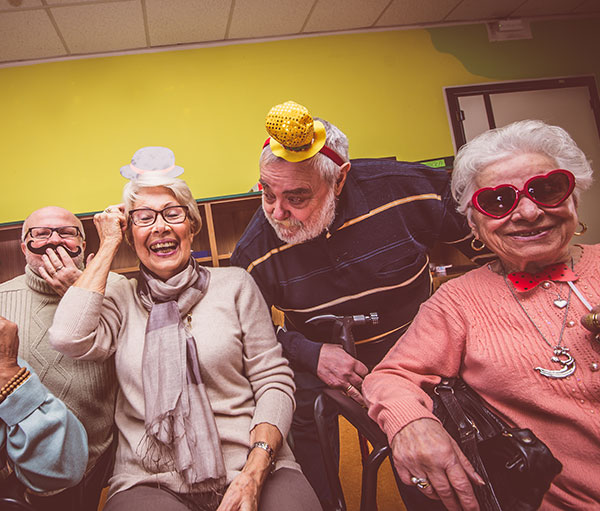Unpacking the Mysteries of Laughter

Most of us do like a good laugh. By now, you’ve probably read that laughter is good for our health—but why? How does that work? Modern brain imaging offers insights and shows that “laughter is the best medicine” isn’t just a cliché.
Humor protects our brains. Researchers are using brain imaging to actually watch the effects of humor in the brain. They see that when we realize something funny is about to happen, our brains gear up for it—and then the punch line sets off a chain reaction that reduces harmful stress in the brain. Pioneer humor researcher Dr. Lee Berk of Loma Linda University says that laughter increases beneficial chemicals in the brain (e.g., dopamine, endorphins and serotonin) while reducing stress hormones that can, over time, damage the brain (such as cortisol and epinephrine).
Humor nurtures social connections. Spending time with other people is so important for health, and laughter helps cement these connections. A team of researchers from the University of Turku in Finland explain, “Endorphin release induced by social laughter may be an important pathway that supports formation, reinforcement, and maintenance of social bonds between humans. The pleasurable and calming effects of the endorphin release might signal safety and promote feelings of togetherness.” And next time you’re enjoying the antics of monkeys at the Brookfield Zoo, consider another of the team’s intriguing speculations: “Other primates maintain social contacts by mutual grooming, which also induces endorphin release. This is, however, very time consuming. Because social laughter leads to similar chemical response in the brain, this allows significant expansion of human social networks.”
Humor protects our closest relationships. Couples, family and friends can get on each other’s nerves sometimes, and dealing with illness and disability can put us even more on edge. If we can laugh at ourselves and together with others, that reduces tension and brings us together. For example, a December 2018 study from University of California, Berkeley showed that as couples grow older, humor tends to replace bickering as a way to resolve conflicts and relieve tension. No wonder contestants on dating shows say they’re looking for a partner with a “good sense of humor”!
Humor also benefits our bodies. Laughter reduces our perception of pain, and improves our immune systems. The benefits to heart health are well-documented. Even the physical act of laughter gives our bodies a mini-workout: a full body stretch, deep breathing, and then relaxation. Laughter can motivate us to keep moving, too. A Georgia State University study found that seniors are more likely to stick with an exercise program if laughter is involved. Games, dancing and other interactive activities can provide plenty of laughter opportunities and help improve strength, balance and flexibility
Adding more laughter to our lives
We each have a sense of humor that’s unique to us, based on our culture, our individual emotional makeup, and maybe even our age. Some studies suggest that our sense of humor evolves over the years. University of Akron psychology professor Jennifer Tehan Stanley notes that younger people often enjoy humor that is at someone else’s expense—“aggressive humor.” But as people age, they tend to find these jokes “mean,” and are more likely to enjoy situations where people laugh together at themselves—“affiliative humor.”
Whatever things you find funny, seek them out. Watch a comedy show on TV. Check out the humor section at your local bookstore or library. Follow your favorite comedians on Facebook. Go to YouTube, enter the search term “funny cat videos,” and settle in.
Better yet, hang out with other people who share your sense of humor. Invite a friend over for a classic comedy video. Play a funny board game. Being with others multiplies the laughs. TV show producers have long known this—hence the addition of laugh tracks. Laughter is as contagious as a yawn—and that’s a contagion worth spreading.
The information in this article is not meant to replace the advice of your health care provider. Talk to your doctor if you are experiencing feelings of sadness, anxiety or stress.
Source: IlluminAge

